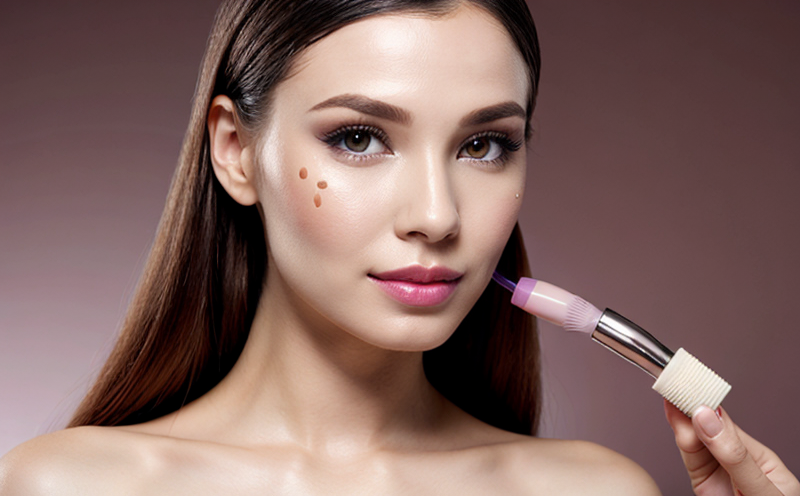In Vitro Blood Compatibility Testing of Cosmetic Ingredients
Testing cosmetic ingredients for blood compatibility is a crucial step in ensuring product safety. This service involves assessing how a cosmetic ingredient interacts with human blood, particularly focusing on its hemolytic potential and other adverse effects. Hemolysis refers to the lysis (rupture) of red blood cells, which can lead to significant health risks if not properly managed.
Our in vitro approach offers a non-invasive, cost-effective alternative to traditional animal testing methods, aligning with global regulatory trends towards more humane and sustainable practices. This service is particularly important for ensuring that cosmetic ingredients do not cause harm when they come into contact with the bloodstream during use or processing.
The process typically involves several steps: selecting appropriate blood types based on the intended audience; preparing the cosmetic ingredient in a manner consistent with its expected usage; exposing the prepared ingredient to the selected blood samples; and then monitoring for any changes indicative of hemolysis. Our laboratory follows stringent protocols to ensure accurate and reliable results.
The testing conditions are carefully controlled, ensuring that each experiment is conducted under similar parameters. This includes maintaining specific temperature and humidity levels, using standardized reagents, and employing precise measurement techniques. The use of advanced analytical instruments allows us to detect even minute changes in the blood samples, providing a comprehensive understanding of the ingredient's compatibility.
Once testing is complete, we generate detailed reports that outline our findings, including any observed hemolytic activity or other potential adverse effects. These reports serve as essential documentation for regulatory compliance and product development decisions.
In vitro blood compatibility testing is not only a legal requirement in many countries but also an ethical consideration in the cosmetics industry. By adhering to these tests, manufacturers can demonstrate their commitment to consumer safety and animal welfare.
Our laboratory uses internationally recognized standards such as ISO 10993-22:2017 for biological evaluation of medical devices, which provides guidance on how to conduct in vitro studies relevant to biocompatibility. Additionally, we follow ASTM E2583-14, which specifies a test method for the determination of hemolysis potential using human blood.
Applied Standards
| Standard | Description |
|---|---|
| ISO 10993-22:2017 | Biological evaluation of medical devices—Part 22: In vitro studies relevant to biocompatibility. |
| ASTM E2583-14 | Determination of hemolysis potential using human blood. |
Eurolab Advantages
We offer a comprehensive suite of services tailored to meet the unique needs of cosmetic ingredient manufacturers. Our team comprises experts with deep experience in both regulatory compliance and scientific research, ensuring that every test is conducted with precision and thoroughness.
- Access to state-of-the-art equipment for accurate measurement.
- Experienced scientists who understand the nuances of each testing protocol.
- Comprehensive reporting services that include detailed analyses and recommendations.
- Commitment to ongoing education and training to stay abreast of regulatory changes.
Our clients benefit from our expertise, ensuring they receive reliable data to support their product development and compliance efforts. We pride ourselves on delivering high-quality results in a timely manner, thereby helping our partners meet market demands effectively.





